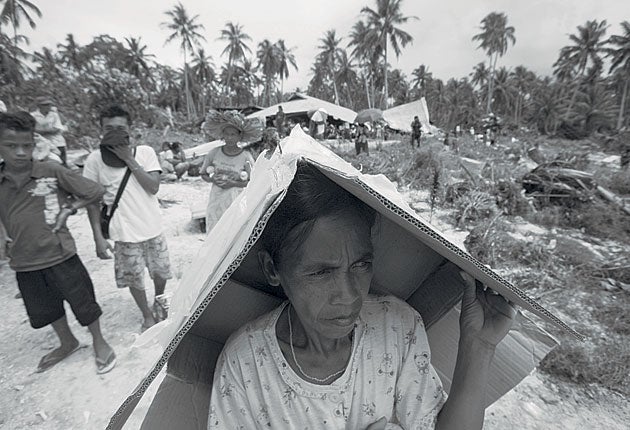'Vandalised' tsunami warning system failed to sound alarm

Your support helps us to tell the story
From reproductive rights to climate change to Big Tech, The Independent is on the ground when the story is developing. Whether it's investigating the financials of Elon Musk's pro-Trump PAC or producing our latest documentary, 'The A Word', which shines a light on the American women fighting for reproductive rights, we know how important it is to parse out the facts from the messaging.
At such a critical moment in US history, we need reporters on the ground. Your donation allows us to keep sending journalists to speak to both sides of the story.
The Independent is trusted by Americans across the entire political spectrum. And unlike many other quality news outlets, we choose not to lock Americans out of our reporting and analysis with paywalls. We believe quality journalism should be available to everyone, paid for by those who can afford it.
Your support makes all the difference.An early warning system installed off Indonesia's Sumatran coast following the 2004 tsunami failed to go off when a giant wave struck an island chain this week, killing at least 343 people.
As aid began to trickle into the remote Mentawai islands yesterday, survivors said they heard no siren after a powerful earthquake sent a 10ft wall of water smashing into the shore, flattening some villages and burying others in mud. Two offshore buoys had been stolen or vandalised, according to one Indonesian official, while others claimed that the system had broken down because of poor maintenance.
Ridwan Jamaluddin, a government technology expert, told the BBC's Indonesian service that the quake's epicentre was so close to the islands that residents would have had no time to flee even if an alarm had sounded. With 338 people still missing, the death toll is expected to rise, said a disaster management official, Ferry Faisal.
Complicating relief efforts, the country's most active volcano, Mt Merapi, began erupting again yesterday after 32 people were killed on Tuesday when it spewed boiling lava and gas clouds into the sky.
Bad weather and stormy seas are delaying the arrival of aid in the Mentawai islands, a 12-hour boat trip from the Sumatran port of Padang. Yesterday a ship carrying food, water, medical supplies and body bags reached one of the worst hit islands, North Pagai.
Rescue workers, who retrieved bodies from roads and beaches, were pessimistic about finding more survivors. One dazed and exhausted woman on North Pagai refused to give up hope that her six-month-old baby might have survived. "I know he's dead, but I keep praying he's still alive," the 20-year-old woman, named Chandra, said.
The multimillion-dollar early warning system – a network of buoys and tidal gauges – was completed two years ago, after 168,000 people died in Aceh, on the tip of Sumatra island, in the 2004 tsunami. Local media reported that two buoys off the Mentawai chain had been vandalised or removed. However, the head of the meteorological agency, Sri Woro Harijono, said the system was still "working fine".
Tiziana Bonapace, a UN disaster risk specialist, told the BBC: "Earthquake and sea-level monitoring systems are in place, but what has proven more difficult is how to get warnings out to remote areas in time. This remains the weakest link in the system."
At Mt Merapi, in central Java, there were no immediate reports yesterday of further casualties following the volcano's second eruption. Tens of thousands of villagers living on its slopes had been evacuated earlier this week.
Join our commenting forum
Join thought-provoking conversations, follow other Independent readers and see their replies
Comments